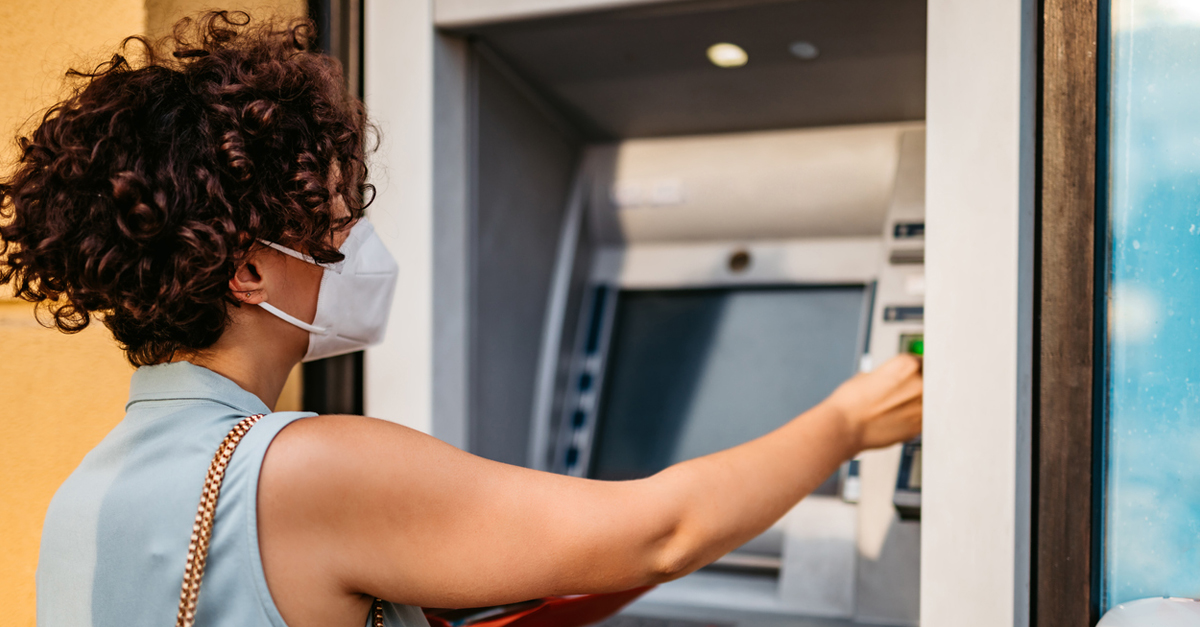
Bankruptcy allows you to wipe out your debt and start fresh. The process can stop legal actions against you, and it will also prevent your creditors from harassing you for repayment.
However, bankruptcy is a legal process, and your conduct before filing will be under review. There are some things that you should never do before filing for bankruptcy. Some of these mistakes may be considered offences under the Bankruptcy & Insolvency Act and can jeopardize your ability to obtain your bankruptcy discharge. Others are just not a good idea financially.
At the same time, if you are considering bankruptcy as an option to help you get out of debt, there are specific steps you can take before declaring bankruptcy that can make the bankruptcy process run smoother. In the second half of this article, I’ll provide some tips on what you should do before filing.
Table of Contents
Mistakes to avoid before filing bankruptcy
Don’t max out your credit cards
One question your trustee will ask as part of their assessment is if you used your credit cards or lines of credit for any purchases or cash advances three months before filing. Using your card in the usual sense, to buy groceries for example, is not likely a concern. However, maxing out your credit cards right before filing with the intent not to pay them back, can be a problem.
A creditor can object to your discharge if you make unusual or excessive transactions, like running up your credit cards to buy things, prior to declaring bankruptcy.
Avoid new loans right before filing
It’s not unusual for someone struggling with debt payments to consider getting a new loan before filing to keep afloat. However, your trustee will ask if you applied for and received any new loans or credit right before your bankruptcy proceeding.
Borrowing money you know you can’t repay or you know will be forgiven when you file bankruptcy might be considered fraud. Any debts you take on fraudulently are not included in your bankruptcy. This means you would have to repay those creditors in full after your bankruptcy.
Don’t repay one creditor in preference to another
If you owe money to a friend, family member, or employer, you might be tempted to pay off those debts before declaring for bankruptcy. Many people see these as a moral obligation, but you should avoid paying creditors selectively.
Paying one creditor over another shortly before filing bankruptcy is known as a preferential payment. Your trustee can request preferential payments be set aside and may sue the person you paid to get the money back so the funds can be distributed equally among all your creditors.
Your trustee will ask about extra or full payouts you’ve made to ordinary creditors in the three months before filing but can look back as far as one year for preference payments to related individuals.
Don’t conceal assets, income or debts
Bankruptcy is a legal process, and you will be required to provide accurate information to your trustee. One of the bankruptcy documents you will sign is a Statement of Affairs, which is simply a list of the things you own, who you owe money to, and your monthly budget. You are signing this statement under oath under penalty of perjury if you lie. It is submitted to the bankruptcy court, and a copy is sent to your creditors.
Making a false entry or hiding assets is an offence under the Bankruptcy & Insolvency Act and the Criminal Code. Your discharge may be affected, and penalties can include criminal conviction and possibly imprisonment for fraud.
Any funds you receive while bankrupt are part of your bankruptcy estate. You are required to disclose if you expect to receive future income, including an inheritance, bonus at work, or tax refund. This is not the case for a consumer proposal, where future income is yours to keep.
Don’t transfer or sell property fraudulently
When you file bankruptcy, you surrender your assets in exchange for the forgiveness of your debts. It is not a good idea to transfer, sell or move assets out of your name to avoid having them seized as part of your bankruptcy.
Prior to filing, your trustee will ask if you sold, transferred or disposed of any assets within the last five years. This would include selling or transferring real estate or vehicles or cashing in RRSPs, life insurance, stocks, and bonds.
If you dispose or transfer assets to hide them from your creditors, you might be denied a discharge and maybe even be subject to criminal penalties.
If you have sold any of your assets before filing for bankruptcy because you needed funds or your expenses such as rent, utilities, or food, that is acceptable. Still, be prepared to explain all your transactions, including how you used any money and provide supporting documentation when needed.
Avoid selling assets or cashing in savings to pay off debts
It is not unusual for someone to sell off certain assets or cash in savings to stay afloat while dealing with hefty debt payments. While liquidating some assets to make regular monthly debt payments may not be illegal or may not affect your bankruptcy, it’s not necessarily a good idea for you financially.
For example, in Canada, most pensions, including RRSPs, are exempt from seizure in bankruptcy. It is not a good idea to cash in your retirement savings only to find it does not solve your debt problem. Similarly, it may not be a good idea to sell off assets to partially pay off debts if it still means you need to file bankruptcy. An alternative may be to consider using the value of these assets to make a consumer proposal to creditors to repay what you can afford while preserving your assets for your future.
Don’t ignore collection actions
Filing bankruptcy provides protection from creditor actions. While you may have been dealing with collection calls for several months, your creditors may soon escalate their collection activity to suing you in court and obtaining an order to garnish your wages or freeze your bank account.
While bankruptcy protection can stop collection actions, like a wage garnishment, it cannot stop secured creditors from repossessing your car or foreclosing on your home if you are behind on your payments. However, declaring bankruptcy sooner can improve your cash flow, so you are able to maintain payments on your car loan or mortgage to avoid these actions.
If you owe money to the Canada Revenue Agency, they can act to freeze your bank account, garnish your wages or attach a lien against your property without first going to court. While personal bankruptcy can stop a wage garnishment or lawsuit, it cannot reverse a lien once one has been registered.
It is possible to stop making payments to creditors included in your bankruptcy if you are certain you will be filing bankruptcy. However, you must keep up with your mortgage or car loan payment if you intend to keep those assets.
What happens if you commit a bankruptcy offence?
When you go bankrupt, your trustee will review your financial situation before and during your bankruptcy. Bankruptcy law provides your creditors with the right to request a creditors’ meeting at which they can ask questions about your conduct before bankruptcy. You may also be subject to an examination by the Official Receiver as part of your personal bankruptcy duties. With all this possible oversight, you can see that it is not a good idea to attempt to circumvent the bankruptcy process.
If you are found to have committed an offence under the Bankruptcy & Insolvency Act, you will unlikely be eligible for an automatic discharge. You may have to attend bankruptcy court, at which time the court can issue an absolute discharge, conditional discharge requiring you to pay more, for example, suspend your discharge until a future date or refuse your discharge entirely.
If severe enough, penalties, including imprisonment, can be imposed by the criminal courts.
What to do to prepare to file bankruptcy
Now let’s look at what you should do before bankruptcy, so the process goes smoothly, and you can start getting back on track as soon as possible.
Find a Licensed Insolvency Trustee. You do not need to pay for a referral. Most reputable trustees will offer a free consultation, and you should not have to pay any fees until you sign your bankruptcy documents. Make sure that you feel comfortable talking with and asking your trustee questions, mostly because you are going to have conversations about very personal issues.
When you meet with your trustee:
- Discuss other debt relief options, including taking out a loan to consolidate your debt or filing a consumer proposal.
- Get copies of your credit report to ensure that you include each creditor in the information you provide to the trustee.
- Make a list of your assets. Bankruptcy forms group together some categories, which means that you won’t be required to list every piece of clothing or household item you own. For items that are more expensive, such as vehicles and real estate, it’s always a good idea to have them appraised so you can determine the value of the property as accurately as possible.
- Your trustee will help you build a budget by looking at your income and expenses. They’ll use this information to help you assess alternatives to bankruptcy and, if you file a consumer proposal, determine what settlement payments you might wish to offer to your creditors.
One of the most critical steps a Licensed Insolvency Trustee will likely advise will be to open a new bank account before you file. If you have an account with the bank where you also have debts, your bank may take money from that account to satisfy unpaid debts. This is known as your bank’s right of offset. Additionally, if your creditors have a wage garnishment in progress, opening a new account ensures that your funds are protected. Even though your stay begins as soon as you file, your creditors and banks will take a few days to process this information in their systems.
Once you have agreed with your trustee to proceed with filing bankruptcy, you will need to complete the appropriate forms using the information you have already gathered about your creditors and assets. Your Licensed Insolvency Trustee will prepare the initial paperwork and review the process with you before you sign.
Once signed and filed with the government, your bankruptcy begins, as does your fresh start.






